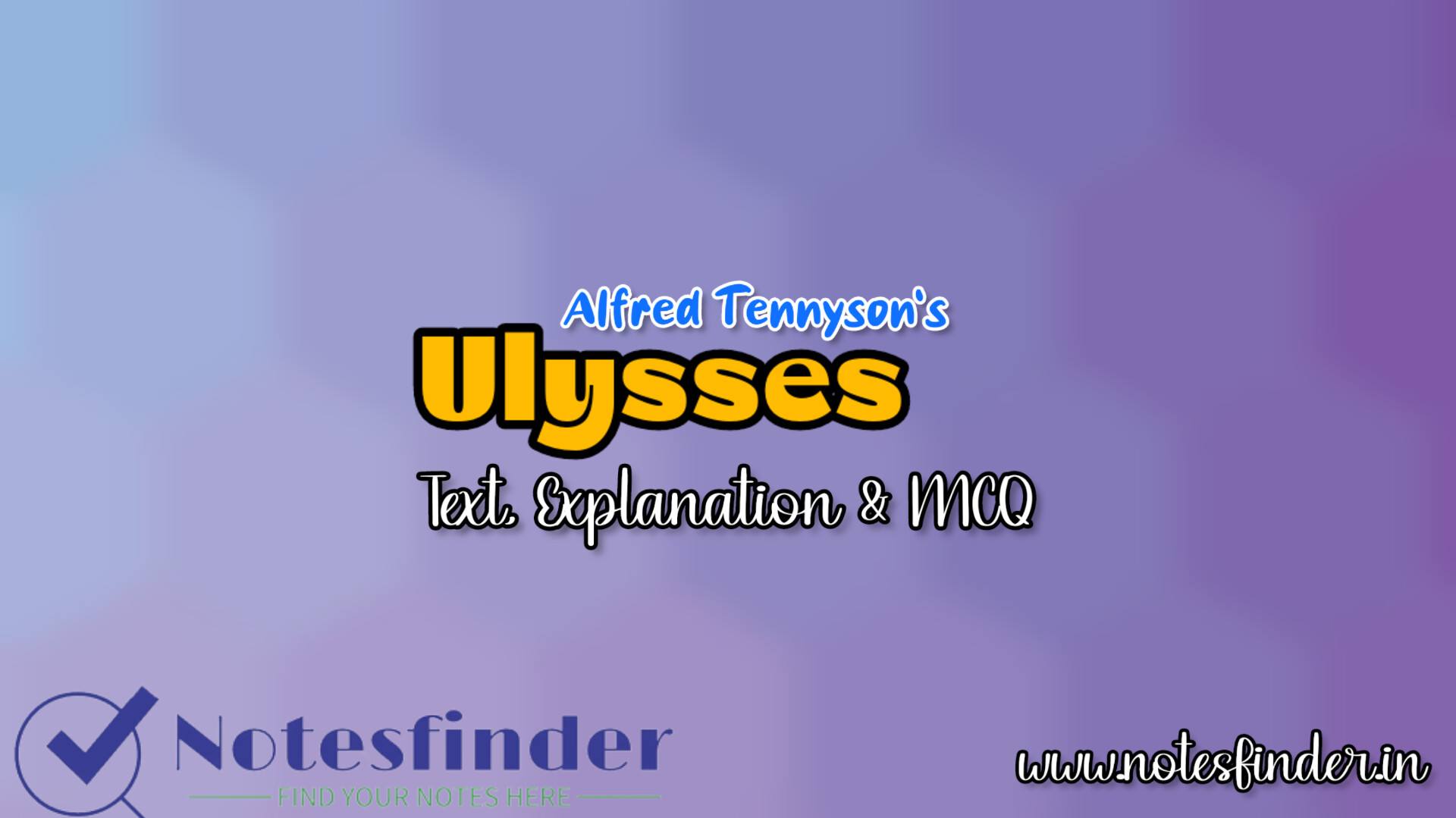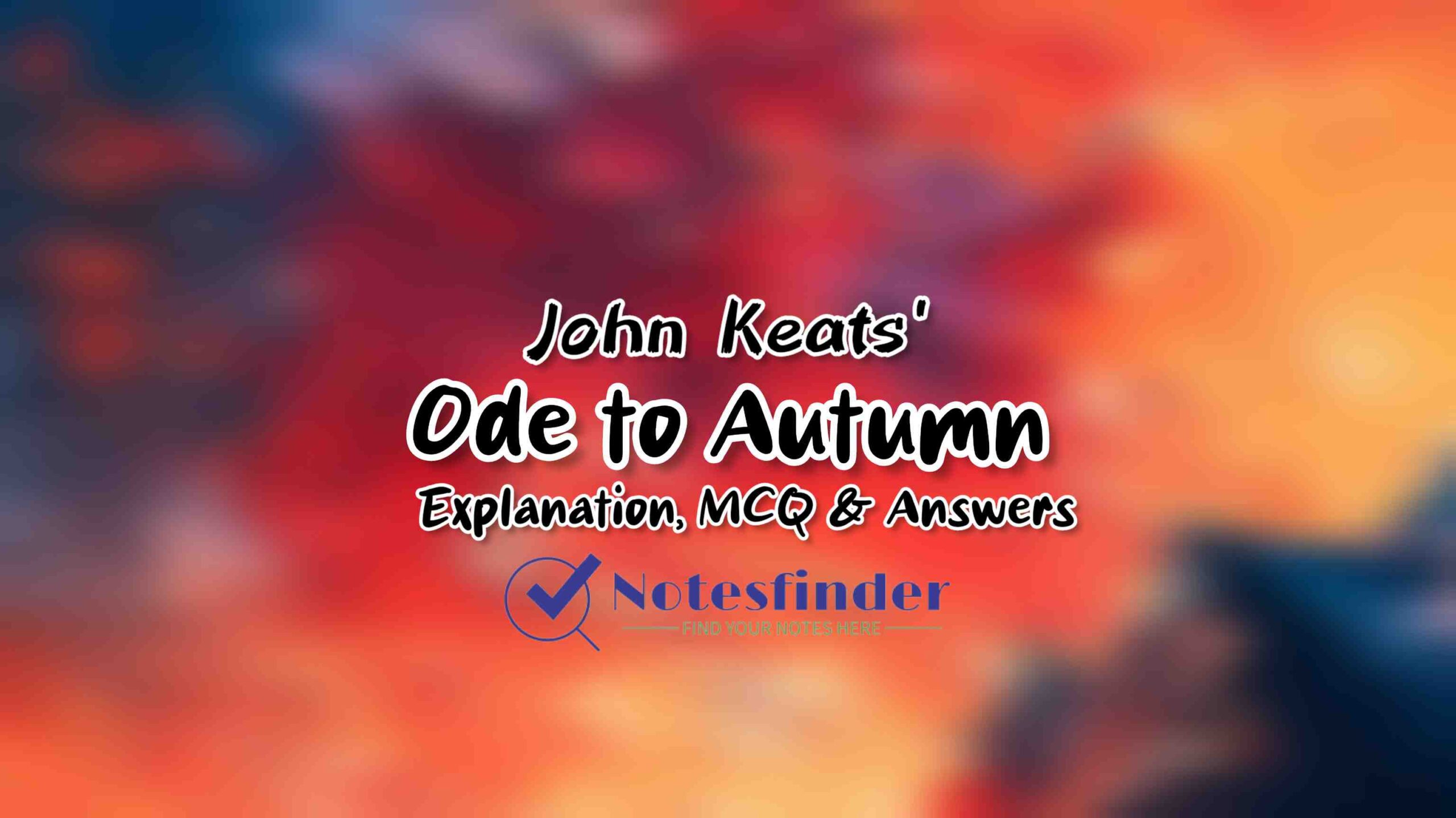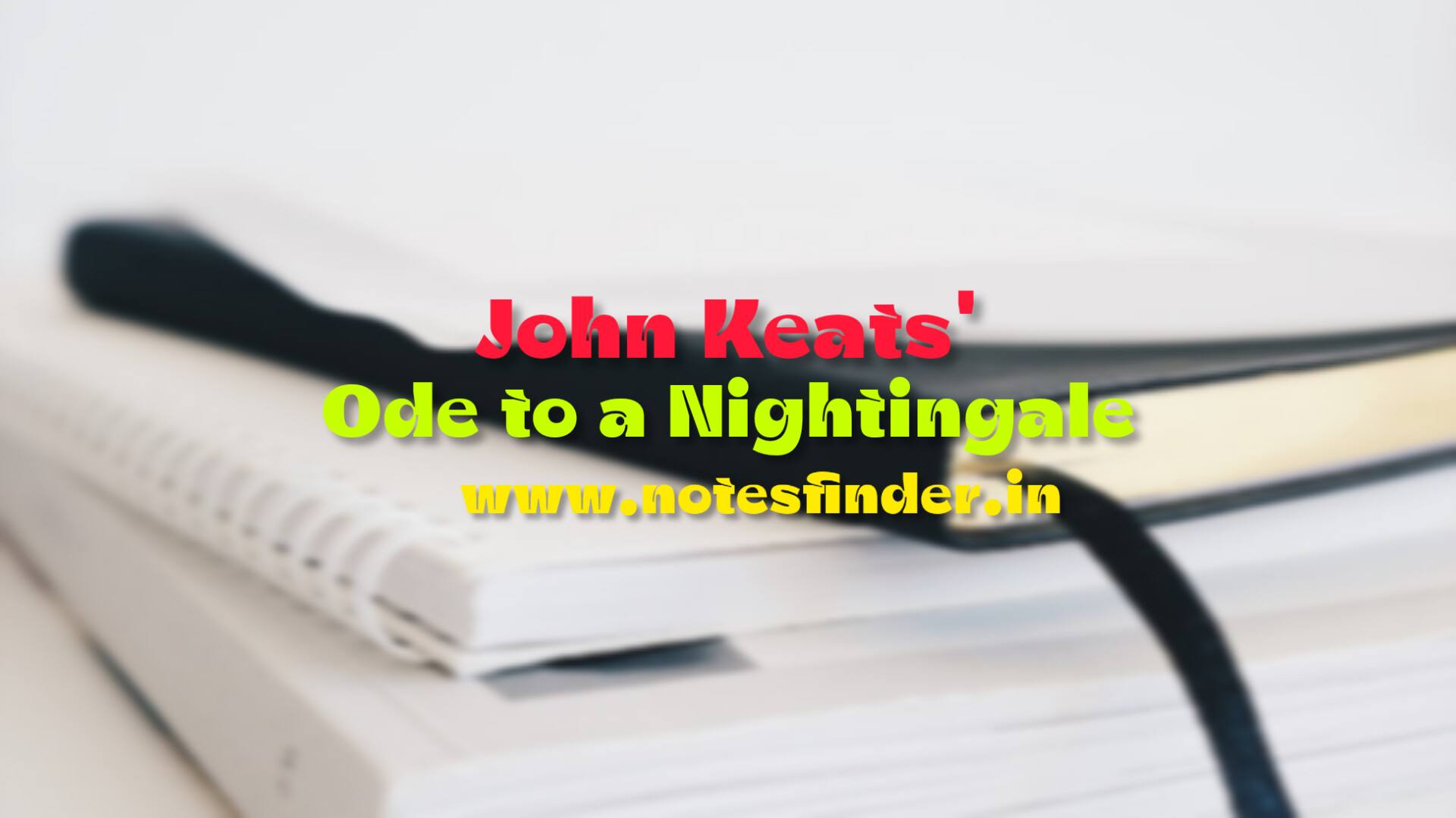The World Is Too Much With Us
The world is too much with us; late and soon,
Getting and spending, we lay waste our powers;
Little we see in Nature that is ours;
We have given our hearts away, a sordid boon!
This Sea that bares her bosom to the moon;
The winds that will be howling at all hours,
And are up-gathered now like sleeping flowers;
For this, for everything, we are out of tune;
It moves us not. Great God! I’d rather be
A Pagan suckled in a creed outworn;
So might I, standing on this pleasant lea,
Have glimpses that would make me less forlorn;
Have sight of Proteus rising from the sea;
Or hear old Triton blow his wreathèd horn.
Word Notes
- Sordid: Dirty or morally corrupt.
- Boon: A benefit or favor.
- Bares: Reveals or exposes.
- Bosom: Chest or heart.
- Howling: Making a loud, wailing sound.
- Up-gathered: Collected or gathered together.
- Forlorn: Lonely or abandoned.
- Glimpses: Brief or quick looks.
- Proteus: A mythological sea god who can change shape.
- Triton: A mythological sea god often depicted with a conch shell.
The World Is Too Much With Us Explanation line by line
The world is too much with us; late and soon,”
The opening line expresses the speaker’s sentiment that the world and its concerns dominate our lives excessively. The phrase “late and soon” suggests that this domination persists both in the present and in the future.
“Getting and spending, we lay waste our powers;—”
The speaker laments how we exhaust our energies and waste our abilities by relentlessly pursuing materialistic desires, represented by the phrases “getting and spending.” This emphasis on consumerism and material pursuits results in neglecting our true potential.
“Little we see in Nature that is ours;”
The speaker observes that we fail to truly appreciate or connect with nature. The phrase “Little we see in Nature” implies that we have lost our connection with the natural world and no longer perceive it as something that belongs to us or is intimately related to our lives.
“We have given our hearts away, a sordid boon!”
The speaker criticizes the tendency to give away our hearts, our passions and genuine emotions, in exchange for shallow and selfish gains. The phrase “a sordid boon” suggests that this exchange is a regretful and ignoble bargain.
“This Sea that bares her bosom to the moon;”
The speaker personifies the sea, referring to it as a feminine entity that exposes her bosom to the moon. This image highlights the sea’s beauty and vulnerability, emphasizing the harmony and natural connection between celestial and earthly elements.
“The winds that will be howling at all hours,”
The speaker acknowledges the presence of howling winds, emphasizing their constant and relentless nature. The winds are portrayed as a natural force that persists throughout all hours, contributing to the ever-present soundscape.
“And are up-gathered now like sleeping flowers;”
This line compares the winds to sleeping flowers, creating a simile. It suggests that the winds, like dormant flowers, are currently calm and still, adding to the overall tranquility of the scene.
“For this, for everything, we are out of tune;”
The speaker declares that we are disconnected from the natural world and out of harmony with it. The phrase “For this, for everything” implies that our lack of harmony extends to all aspects of our existence, emphasizing the depth of our disconnection.
“It moves us not. Great God! I’d rather be”
The speaker expresses frustration and indifference toward the impact of nature upon us. The exclamation “Great God!” suggests the speaker’s despair and longing for a different state of being.
“A Pagan suckled in a creed outworn;”
The speaker imagines a preferable alternative—a pagan who was raised in an outdated and discarded religious belief system. This image conveys the speaker’s yearning for a more primal and authentic connection with nature and spirituality.
“So might I, standing on this pleasant lea,”
The speaker envisions himself standing on a pleasant meadow, appreciating the beauty of the natural world. This setting provides solace and respite from the overwhelming nature of the modern world.
“Have glimpses that would make me less forlorn;”
The speaker suggests that these glimpses of nature’s grandeur and purity would alleviate his feelings of loneliness and sadness. These moments of connection with the natural world offer a sense of comfort and relief.
“Have sight of Proteus rising from the sea;”
The speaker longs for visions of Proteus, a mythical Greek sea god capable of changing forms. This symbolizes the desire for transformative and awe-inspiring encounters with nature.
“Or hear old Triton blow his wreathèd horn.”
The speaker desires to hear the sound of Triton, another mythical sea god, blowing his twisted horn. This image represents the longing to witness the majestic and enchanting elements of nature. The sound of Triton’s horn symbolizes the call of the natural world, inviting the speaker to a deeper connection and a sense of wonder.
Overall, the poem expresses the speaker’s frustration with the materialistic and disconnected state of humanity. He yearns for a return to a more harmonious relationship with nature, where he can find solace, beauty, and spiritual fulfillment. The poem highlights the contrast between the overwhelming dominance of worldly pursuits and the profound connection that can be found in the natural world. Through vivid imagery and introspective reflections, the poem urges readers to reevaluate their priorities and seek a more balanced and meaningful existence
Figures of Speech in ” The World is too much with Us”
Hyperbole: “The world is too much with us”
This is an example of hyperbole, an exaggeration used to emphasize the overwhelming nature of the world and its influence on our lives.
Personification: “This Sea that bares her bosom to the moon”
The sea is personified as a woman who exposes her bosom to the moon. This figure of speech attributes human characteristics (exposing her bosom) to the sea, enhancing the vividness of the imagery.
Simile: “And are up-gathered now like sleeping flowers”
The winds are compared to sleeping flowers using the word “like,” creating a simile. This comparison highlights the stillness and tranquility of the winds.
Metaphor:
- “This Sea that bares her bosom to the moon” compares the sea to a woman exposing her chest, emphasizing its openness and vulnerability.
- “The winds that will be howling at all hours” compares the winds to creatures that express their voice in a haunting, continuous manner.
- “we lay waste our powers” This line uses metaphor to imply that human beings are wasting their abilities. It suggests that our potential and capabilities are being misused or not fully utilized, emphasizing the idea of neglect and squandering.
Allusion:
- “Proteus rising from the sea” alludes to Proteus, a mythical sea god capable of changing shape, symbolizing the poet’s desire for transformation and connection with nature.
- “Old Triton blow his wreathèd horn” alludes to Triton, a sea god often depicted blowing a conch shell, evoking a sense of ancient power and the call of nature.
Imagery: Various instances throughout the poem
The poem is rich in imagery, using vivid and sensory language to evoke mental images. Examples include “the Sea that bares her bosom to the moon,” “sleeping flowers,” “glimpses of Proteus rising from the sea,” and “old Triton blow his wreathèd horn.” These images help convey the speaker’s emotions, emphasizing the beauty of nature and the desire for a deeper connection with it.
Multiple Choice Questions (MCQ) from The World is too much with Us
1. What is the central theme of the poem?
a. The power of human beings over nature
b. The wastefulness of human actions
c. The beauty of the moon and the sea
d. The importance of pagan beliefs
Answer: b. The wastefulness of human actions
2. According to the poem, what have human beings given away?
a. Their hearts
b. Their powers
c. Their money
d. Their beliefs
Answer: a. Their hearts
3. What does the speaker prefer to be, rather than a part of the modern world?
a. A Pagan
b. A philosopher
c. A poet
d. A mystic
Answer: a. A Pagan
4. According to the poem, what would make the speaker less forlorn?
a. Glimpses of the moon and the sea
b. Hearing the howling winds
c. Seeing sleeping flowers
d. Observing nature in its true form
Answer: d. Observing nature in its true form
5. Who is mentioned in the last two lines of the poem?
a. Zeus and Poseidon
b. Apollo and Hermes
c. Proteus and Triton
d. Dionysus and Athena
Answer: c. Proteus and Triton
6. What does the phrase “This Sea that bares her bosom to the moon” imply?
a. The sea is calm and serene under the moonlight.
b. The sea is agitated and turbulent under the moonlight.
c. The sea is beautiful and inviting under the moonlight.
d. The sea is unpredictable and dangerous under the moonlight.
Answer: a. The sea is calm and serene under the moonlight.
7. What does the phrase “we are out of tune” suggest?
a. We are disconnected from nature.
b. We are unable to appreciate music.
c. We are unable to synchronize our actions.
d. We are out of harmony with ourselves.
Answer: a. We are disconnected from nature.
8. What does the speaker mean by “a creed outworn”?
a. An ancient religious belief
b. A modern and progressive ideology
c. A traditional set of moral principles
d. A dogmatic and outdated doctrine
Answer: d. A dogmatic and outdated doctrine
9. What does the speaker wish to experience by being a Pagan?
a. A sense of rebellion against societal norms
b. A connection with ancient gods and mythical beings
c. A deeper understanding of the natural world
d. A freedom from religious restrictions
Answer: b. A connection with ancient gods and mythical beings
10. What does the image of Proteus rising from the sea symbolize?
a. Transformation and change
b. Power and authority
c. Mystery and uncertainty
d. Beauty and elegance
Answer: a. Transformation and change
11. What does the phrase “lay waste our powers” suggest?
a. We are utilizing our abilities to their fullest extent.
b. We are neglecting and squandering our capabilities.
c. We are accumulating wealth and material possessions.
d. We are investing our energy in destructive endeavors.
Answer: b. We are neglecting and squandering our capabilities.
12. What is the speaker’s attitude towards nature?
a. Indifference and apathy
b. Reverence and awe
c. Fear and anxiety
d. Contempt and disdain
Answer: b. Reverence and awe
13. What does the phrase “up-gathered now like sleeping flowers” suggest?
a. The winds are gentle and calm.
b. The winds are powerful and vigorous.
c. The winds are dormant and peaceful.
d. The winds are unpredictable and chaotic.
Answer: c. The winds are dormant and peaceful.
14. What does the speaker mean by “a sordid boon”?
a. A valuable gift
b. A tarnished treasure
c. A selfish advantage
d. A regretful blessing
Answer: c. A selfish advantage
15. What is the speaker’s desire in the final two lines of the poem?
a. To witness mythical creatures
b. To escape from reality
c. To seek spiritual enlightenment
d. To embrace pagan traditions
Answer: a. To witness mythical creatures
16. According to the speaker, why are human beings “out of tune”?
a. They have lost their connection with nature.
b. They have lost their sense of rhythm and harmony.
c. They have lost their ability to appreciate music.
d. They have lost their passion for life.
Answer: a. They have lost their connection with nature.
17. What does the phrase “Little we see in Nature that is ours” imply?
a. Human beings have dominion over nature.
b. Human beings have ownership of natural resources.
c. Human beings have lost their appreciation for the natural world.
d. Human beings have limited access to nature’s beauty.
Answer: c. Human beings have lost their appreciation for the natural world.
18. What does the speaker mean by “a creed outworn”?
a. A religious belief system that has become irrelevant.
b. A personal code of conduct that has been abandoned.
c. A traditional set of values that no longer hold true.
d. A spiritual doctrine that has been forgotten.
Answer: a. A religious belief system that has become irrelevant.
19. What does the speaker express a preference for?
a. Modernity and progress
b. Ancient pagan beliefs
c. Spiritual enlightenment
d. Material possessions
Answer: b. Ancient pagan beliefs
20. What is the speaker’s overall sentiment in the poem?
a. Frustration and disillusionment with modern society
b. Awe and wonder at the beauty of nature
c. Contempt and disdain for human actions
d. Nostalgia and longing for a simpler time
Answer: a. Frustration and disillusionment with modern society
21. What does the phrase “The world is too much with us” suggest?
a. The world is overwhelming and burdensome.
b. The world is lacking in meaningful experiences.
c. The world is detached and distant from us.
d. The world is constantly changing and evolving.
Answer: a. The world is overwhelming and burdensome.
22. What does the phrase “For this, for everything, we are out of tune” refer to?
a. The speaker’s indifference towards nature.
b. The speaker’s dissatisfaction with material pursuits.
c. The speaker’s lack of harmony with the world.
d. The speaker’s disconnection from spiritual beliefs.
Answer: c. The speaker’s lack of harmony with the world.
23. What does the speaker mean by “a Pagan suckled in a creed outworn”?
a. A person who follows an ancient and outdated religion.
b. A person who rejects religious beliefs altogether.
c. A person who is born into a family with unconventional beliefs.
d. A person who seeks solace in nature and ancient traditions.
Answer: a. A person who follows an ancient and outdated religion.
24. What is the speaker’s attitude towards the modern world?
a. Reverence and awe
b. Disgust and disdain
c. Curiosity and intrigue
d. Acceptance and contentment
Answer: b. Disgust and disdain
25. What is the significance of mentioning Proteus and Triton in the poem?
a. They represent the speaker’s longing for adventure and exploration.
b. They symbolize the transformative power of nature.
c. They embody the speaker’s desire for mythical experiences.
d. They represent the speaker’s yearning for divine intervention.
Answer: b. They symbolize the transformative power of nature.



